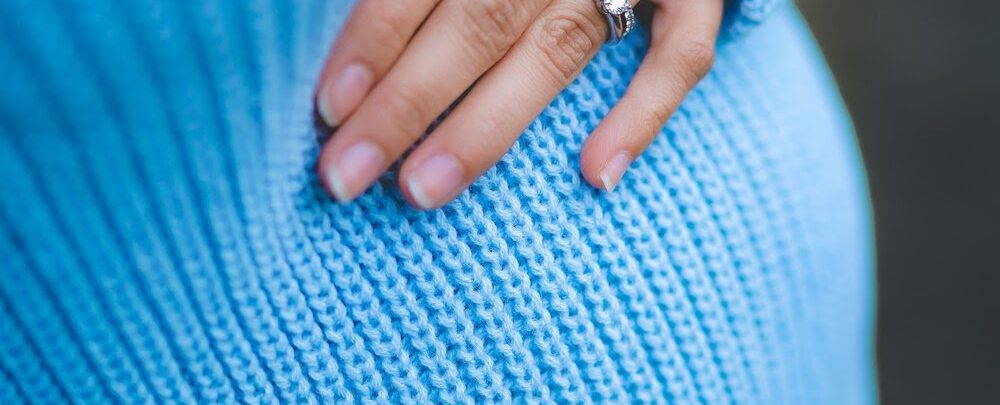Eating a well-balanced and nutritious diet is important for our overall health and when we fall pregnant, it is particularly essential that we make sure we are consuming those all-important nutrients to help support the growth and development of our baby! Before we get going, this article is based on evidence based research and should not be considered as personalised advice. If you have any specific concerns about your diet whilst pregnant please seek help from your GP, Midwife or Registered Nutritionist / Dietitian.
Eating a well-balanced diet that contains nutrient rich foods is considered very beneficial in pregnancy. Unfortunately, the first trimester can be very difficult in regards to what we eat… Around 70% of pregnant women will experience some kind of morning sickness (often reported as all day sickness) which can make it very difficult to balance your meals. Do not worry if all your body can stomach is carbs. The baby will draw its nutrient intake from your existing nutrient stores – it will just be you that feels deprived! My advice would be to eat little and often, eat what you can, stay hydrated and make sure you are taking prenatal vitamins.
There is no specific ‘pregnancy diet’ however there are some key food groups and nutrients you will need to consider.
As mentioned, a lot of women can only stomach carbohydrates in the first trimester (I personally lived off marmite on toast!)… the good news is carbs are the bodies preferred source of energy so they are important to include throughout all stages of pregnancy. Try and opt for whole grains where you can to help support your fibre intake. Fibre is very beneficial to our wellbeing and can also help to support a healthy digestive system. You also want to be mindful of your protein intake. Protein supports the growth and development of the baby so make sure you are having a portion of protein at each meal (and snacks). Mix it up and include plenty of plant proteins too as foods such as beans, chickpeas and lentils are good sources of fibre too.
Omega 3 is another important nutrient and is essential to the diet. If you are not consuming 1-2 portions of oily fish a week you will need to include foods such as walnuts, flaxseeds or chia seeds or consider a supplement.
Calcium supports the formation and maintenance of your baby’s teeth and bones (and is needed for the health of your own teeth and bones too). The BDA recommend 3 portions of dairy a day (200ml glass of milk, 150g yoghurt, 30g cheese) as it is a great source of calcium. Non dairy sources of calcium include: tahini, spinach, broccoli, tofu, beans, sardines, almonds and dried fruit.
Once the nausea of the first trimester wears off, you want to make sure you are prioritising your fruit and veg intake. Aim for at least 5 portions of fruit and veg a day and opt for things like soups or smoothies if it helps up your intake.
Prenatal supplements: Pre natal supplements are essential. 400mcg of Folic Acid is advised 1-3 months prior to conception and in the first 3 months of pregnancy. You should choose a prenatal supplement to take throughout your pregnancy that also contains 10mcg Vitamin D and 150mcg Iodine. Additional Vitamin A is not advised and you should always check with your GP if you are unsure in regards to which prenatal supplement to choose. If you are vegan / vegetarian you may want to also consider a prenatal supplement that includes omega 3 as well as B12.
Your body requires increased nutrient intake when you are growing a baby however the ‘eating for two’ saying is a bit of a myth. Think quality over quantity. The current NHS guidelines advise that you should eat the same (healthy) amount as you would do normally, until you get to your third trimester and consume around an extra 200kcals. This is an estimate and equates to 1-2 extra snacks. However this may be slightly different if you were underweight when you conceived.
Additional Tips
- Avoid alcohol throughout pregnancy.
- Don’t smoke
- Ensure all meats are cooked properly
- Practice good hygiene around food
- Wash your fruits and veggies
- Avoid soft cheeses and unpasteurised dairy
- Stay hydrated
- Do not consume high mercury fish: Swordfish, marlin, shark
- Consult your GP and / midwife if you have any specific concerns
References
https://www.nhs.uk/start4life/pregnancy/healthy-eating-pregnancy
https://www.bda.uk.com/resource/pregnancy-diet.html




Leave a Rating / Review
You must be logged in to post a comment.